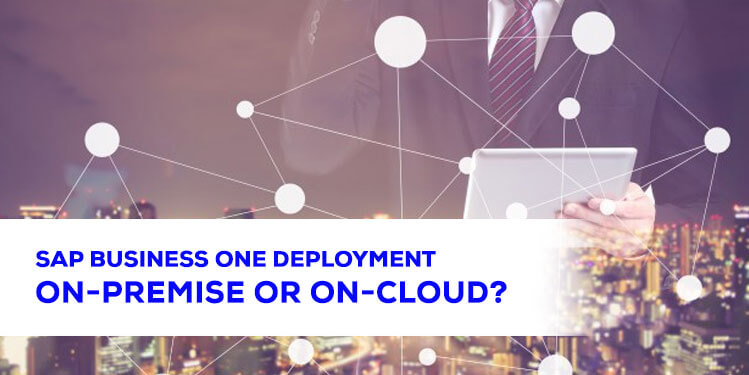When your company needs an ERP system that is reliable, integrated and easy for users to use, SAP Business One is the right solution. Whether it’s for companies engaged in manufacturing, commodities, feed mill & poultry, distribution/trading, retail and financial & social organizations.
And when you have decided to use SAP Business One, including the determination of the database that will be used whether SAP Hana or Microsoft SQL, then the next thing to consider is, where will the system be deployed/installed? Can SAP Business One use cloud? If possible, should it be on-Cloud or on-Premise?
What is “On-Cloud”?
On-Cloud means the system will be installed at a cloud hosting service provider such as Amazon Web Services (AWS), Google Cloud (GCP) or Huawei Cloud.
There are 2 SAP Business One models that can use cloud hosting:
- SAP Business One as SaaS (Software as a Service)
In this case, SAP B1 will be installed/deployed on the Cloud by an SAP partner that has been appointed and has been certified to provide SAP system rental services. And later companies in need can rent their SAP Business One system at a cost per user per month which is quite affordable.
This means that the SAP B1 System belongs to the partner and not the customer. This model is also known as SAP Business One On-Demand. - SAP Business One using cloud as IaaS (Infrastructure as a Service)
For this model, the easy illustration is that a company rents a space/storage in the cloud to install SAP Business One. So what is leased by the company is storage in the cloud, while the SAP B1 System is the property of the company.
What is “On-Premise”?
On-Premise means the system will be installed on a server located in the location where the user company is located, for example: in the company’s headquarters building.
SAP B1 On-Premise Vs On-Cloud?
There are several points of difference that are taken into consideration in deciding whether to deploy SAP Business One on-Premise or On-Cloud (be it IaaS or SaaS)
| On-Cloud (IaaS) | On-Demand (SaaS) | On-Premise | |
|---|---|---|---|
| SAP B1 License | Belong to customer, paid in upfront. | Owned by service providers, paid in the form of rent per month. | Belong to customer, paid in upfront. |
| Maintenance Cost SAP B1 | Yearly | Included in monthly rent fee | Yearly |
| SAP B1 Update | Depend on customer need. | Automatic | Depend on customer need. |
| Enhancement Capabilities | Yes | Using standard SAP B1 features and functionalities | Yes |
| Access From Anywhere | Yes | Yes | Yes, with certain local network configuration need to be setup first. |
| Accuisition Cost |
|
|
|
| Server Maintenance Cost | Cost base on resources used. | Included in the rental fee according to the package chosen. | Maintenance fee for server, electricity & server room. |
| Server Scalability | Easy to upgrade, according to company requirements. | Following service provider policy. | Upgrading takes time and is subject to hardware availability. |
| Security | Security configuration is done by the company. | Security configuration is done by the service provider. | Security configuration is done by the company. |
| Hardware Dependencies | Lack of hardware damage, even almost none reported. | Lack of hardware damage, even almost none reported. | Very much depends on the reliability of the hardware |
| Network Dependencies | Depend on internet connection | Depend on internet connection | Using local area network. |
If calculated, the cost of using the cloud will usually be more expensive compared to on-Premise. But there are some things which cannot be judged solely in financial terms. Such as:
- The physical reliability of the server from possible failures such as hard disk damage or memory (RAM) damage.
- Problems with the building electricity or network.
- Ease to upgrade the server.
Some points why companies prefer to keep using on-premise are:
- Ease to control and manage system security issues because they can only be accessed from the local network
- Acquisition for a server is cheaper although it looks bigger because the company need to pay it upfront.
However, whatever the hosting options, the SAP System used still has the same basic functions and features. And it has been proven to be very helpful for the company to run its business process better.
Customer Success Story
Understand how SAP Business One can help companies in Indonesia manage their business
More info about companies using SAP Business One can be seen here

